Indonesian drinks showcase a vibrant array of flavors and ingredients, reflecting the country's diverse cultural heritage and tropical climate. Es Teh, or iced tea, is a refreshing beverage enjoyed throughout the archipelago, often served sweetened with cane sugar or condensed milk. Jamu, a traditional herbal drink, features a blend of spices, roots, and herbs believed to promote health and wellness. Wedang Jahe, a ginger-based drink, offers a soothing warmth with hints of lemongrass and palm sugar. Other popular Indonesian drinks include Es Cendol, a sweet and creamy concoction of coconut milk, palm sugar, and green rice flour jelly.
Kopi luwak
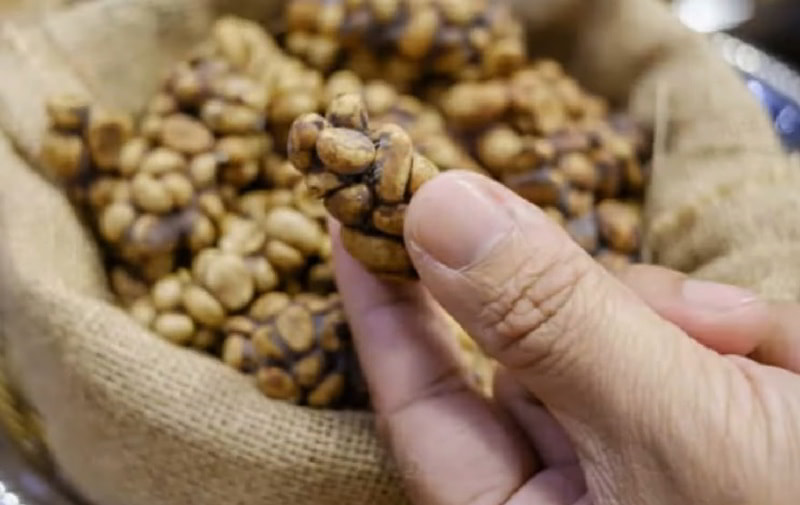
Kopi luwak, also known as civet coffee, is a unique and highly sought-after coffee. It is made from coffee beans that have been consumed and excreted by the Asian palm civet, a small mammal native to Southeast Asia. The process of producing kopi luwak begins with the civet selecting and consuming the ripest coffee cherries. The beans then pass through the digestive system of the animal, undergoing fermentation and enzymatic breakdown. After being excreted, the beans are collected, thoroughly washed, and meticulously sorted. What sets kopi luwak apart is the distinct flavor profile it acquires during this process. The fermentation and digestion contribute to a smoother, less acidic taste, with a hint of chocolate undertones. Coffee enthusiasts appreciate its unique and delicate flavor. Although kopi luwak has gained popularity worldwide, it is important to note that ethical concerns have arisen regarding the production methods.
Teh Tarik

Teh tarik, which translates to "pulled tea," is a popular traditional Indonesian drink that has gained popularity not only in Indonesia but also across Southeast Asia. This beverage is made by combining black tea with condensed milk and then "pulling" or pouring the mixture between two containers to create a frothy texture. The process of pulling the tea helps to cool it down and mix the flavors, resulting in a smooth and creamy drink. Teh tarik is often enjoyed as a morning or afternoon beverage, as it provides a comforting and refreshing experience. The addition of condensed milk gives the tea a sweet and creamy taste, balancing the bitterness of the black tea. It is common to find street vendors or small cafes serving this beloved drink, often prepared with skillful theatrics as the vendors demonstrate their expertise in pouring and pulling the tea. Teh tarik is a delightful drink that appeals to both tea lovers and those seeking a unique and flavorful beverage.
Sweet Tea

Sweet tea is a popular and refreshing beverage in Indonesia. It is a traditional drink that is loved by locals and tourists alike. Made from black tea leaves and sweetened with sugar, sweet tea has a distinct flavor that is both sweet and aromatic. The preparation of sweet tea is quite simple. First, the black tea leaves are brewed in hot water until the desired strength is achieved. Then, sugar to sweeten the tea and enhance its flavor. Sweet tea may be flavored with lemon, peach, raspberry, or mint. The tea is usually served over ice to make it even more refreshing, especially in the hot Indonesian climate. It is also a popular drink to accompany street food or snacks.
Ginger Tea
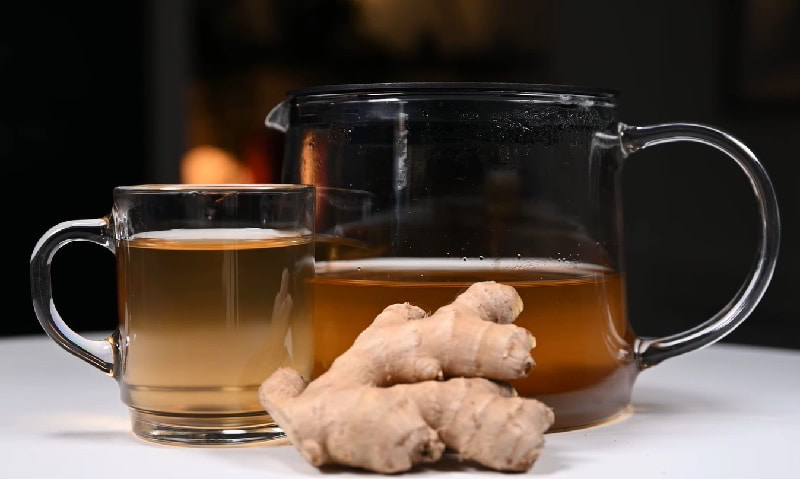
Indonesian Ginger Tea, known as "wedang jahe," is a popular and traditional drink in Indonesia. It is made by brewing a combination of ginger, palm sugar, and water. This aromatic and warming beverage is enjoyed throughout the year but is especially favored during the rainy season or when someone is feeling under the weather. To prepare Indonesian Ginger Tea, fresh ginger is peeled and sliced before being boiled in water. The longer the ginger is simmered, the stronger the flavor will become. Palm sugar, known as "gula jawa," is added to sweeten the tea and balance the spiciness of the ginger. Some variations may include additional ingredients such as lemongrass, pandan leaves, or cloves to enhance the flavor profile. The resulting drink is a delightful blend of sweet, spicy, and slightly tangy flavors. It is often served hot in small cups or glasses, allowing the rich aroma to envelop the senses. Indonesian Ginger Tea is not only enjoyed for its taste but also for its many health benefits, such as aiding digestion, relieving cold symptoms, and boosting the immune system. Whether sipped on a chilly evening or as a soothing remedy, Indonesian Ginger Tea is a beloved and comforting beverage that captures the essence of Indonesian culture and hospitality.
Bandung
-1706114191.jpg)
Bandung is a popular Indonesian drink known for its vibrant color and delightful taste. This refreshing beverage is made by combining rose syrup with condensed milk and water. The result is a sweet and creamy drink with a distinctly floral flavor. Bandung is often served over ice, making it a perfect choice for hot and humid days. Its pink hue adds an aesthetic appeal that is as appealing as its taste. The combination of the rose syrup and condensed milk creates a unique balance of flavors that is both creamy and fragrant. In addition to being a popular drink, Bandung is also used as a base for other desserts and dishes. It can be incorporated into ice creams, puddings, and even cakes, adding a touch of sweetness and floral essence. Bandung is a beloved beverage in Indonesia, enjoyed by people of all ages.
Brem
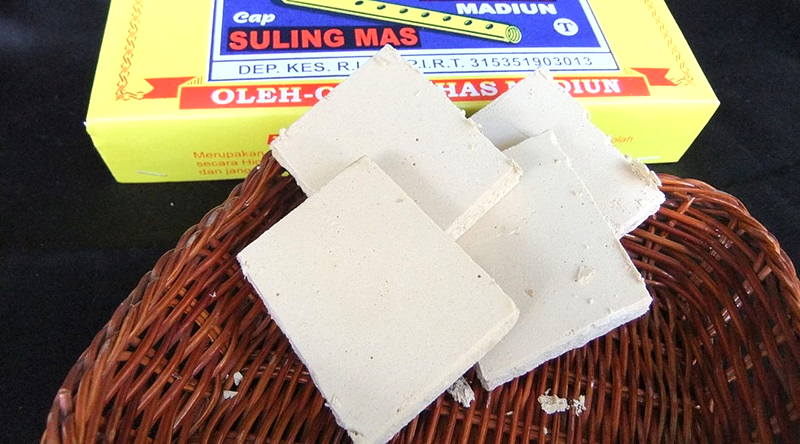
Brem is a traditional Indonesian drink that is beloved for its unique taste and cultural significance. Made from fermented glutinous rice, Brem has a sweet and slightly alcoholic flavor that is distinct and refreshing. The process of making Brem starts with soaking the glutinous rice, then cooking and cooling it before adding yeast to initiate the fermentation process. The mixture is left to ferment for several days, allowing the natural sugars to convert into alcohol. This gives Brem its characteristic mild alcoholic content. Brem is commonly enjoyed as a dessert or aperitif, served chilled in small glasses. It is often paired with traditional Indonesian snacks such as fried bananas or sweet cakes. The taste of Brem is sweet and tangy, with hints of caramel and a subtle fermented undertone. Beyond its delicious taste, Brem holds cultural significance in Indonesia.
Kopi tubruk

Kopi tubruk is a traditional Indonesian coffee drink that is known for its simplicity and strong flavor. The name "tubruk" refers to the method of preparation, which involves pouring hot water directly onto the coffee grounds and allowing it to steep for a few minutes before drinking. This method is reminiscent of the Turkish coffee brewing technique. To make kopi tubruk, coarsely ground coffee beans are placed in a cup or glass. Boiling water is then poured over the coffee grounds, and the mixture is left to brew for a few minutes. Afterward, the coffee is stirred, allowing the grounds to settle at the bottom of the cup before sipping. Kopi tubruk is known for its bold and intense flavor, as the coffee grounds are not filtered out. This results in a strong, full-bodied brew that is often enjoyed with a touch of sugar. It is a popular choice among coffee enthusiasts in Indonesia and can be found in many local coffee shops and street stalls.
Bajigur
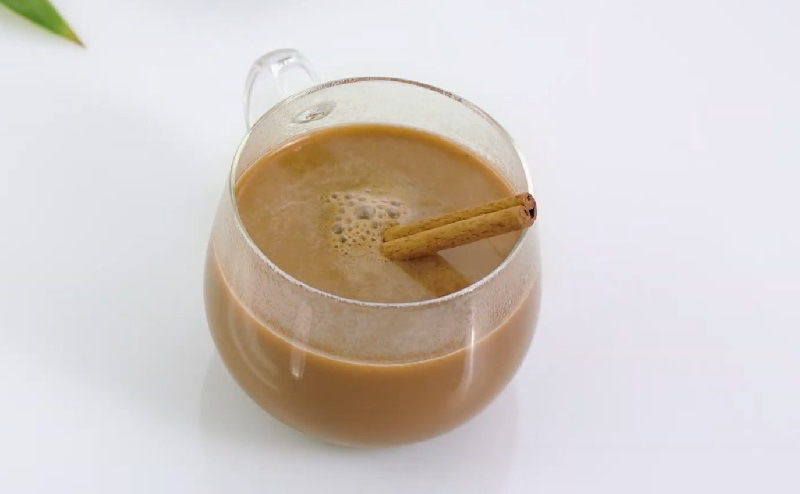
Bajigur is a traditional Indonesian drink that originates from the Sundanese community in West Java. This delightful beverage is popular for its rich and comforting flavors, making it a favorite choice during colder months or rainy days. The main ingredients of Bajigur include coconut milk, palm sugar, ginger, and pandan leaves. These ingredients are combined and simmered together to create a thick and creamy base. The addition of roasted peanuts and a pinch of salt gives Bajigur a unique and savory twist. Bajigur is often served hot in small clay cups or mugs. Its aromatic and earthy flavors, along with a hint of sweetness from the palm sugar, create a soothing and satisfying experience. It is common to find street vendors or small cafes selling Bajigur, especially in the Sundanese regions of Indonesia.
Beer
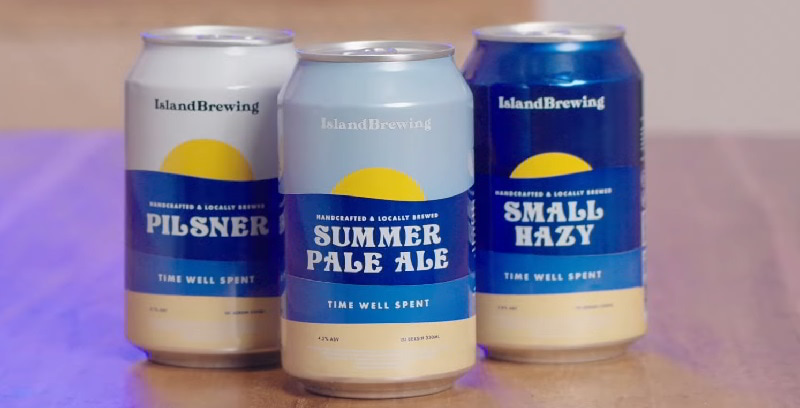
Beer is a popular alcoholic beverage in Indonesia, enjoyed by locals and tourists alike. It is commonly consumed in social gatherings, restaurants, and bars throughout the country. Indonesian beer brands such as Bintang, Bali Hai, and Anker are widely available and well-known. Indonesian beer is typically light and refreshing, perfect for the tropical climate. It is often served chilled in bottles or cans. The taste of Indonesian beer is crisp and smooth, with a balanced flavor profile that appeals to a wide range of palates. To complement the enjoyment of beer, Indonesian cuisine offers a variety of dishes that pair well with this beverage. One popular dish is Sate, which consists of skewered and grilled meat, usually chicken or beef, served with a flavorful peanut sauce. Another delicious option is Gado-gado, a salad of blanched vegetables, tofu, and boiled eggs, topped with a rich peanut dressing. Indonesia's diverse culinary heritage also provides other dishes that perfectly match the refreshing qualities of beer, such as Nasi Goreng (fried rice), Mie Goreng (fried noodles), and Ayam Penyet (smashed fried chicken).
Bandrek
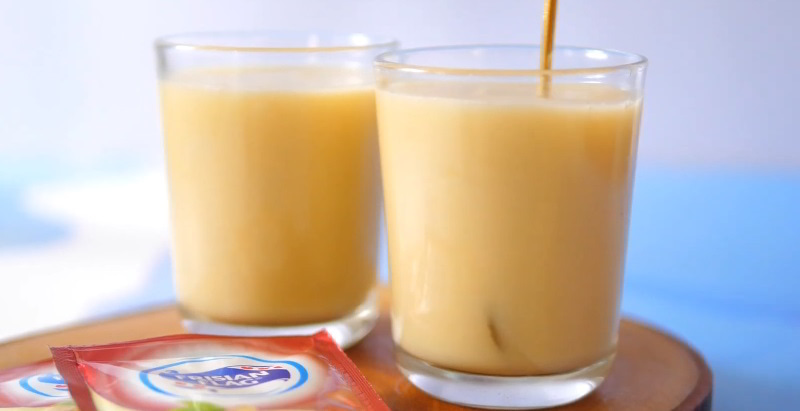
Bandrek, a traditional beverage indigenous to the Sundanese people of West Java, Indonesia, is a comforting blend of sweetness and spice. Enjoyed in the cool highlands, especially during chilly nights, this hot beverage is made of a mixture of palm sugar, cinnamon and ginger water. Other ingredients include cloves, star anise, coriander seeds, lemongrass, cardamom pods, and a small amount of black pepper are sometimes included. Variations may feature the addition of milk, often sweetened condensed milk or coconut milk, tailored to individual preferences. Bandrek is not only a warming beverage but is also believed to have healing properties for minor ailments such as sore throats.
Es buah
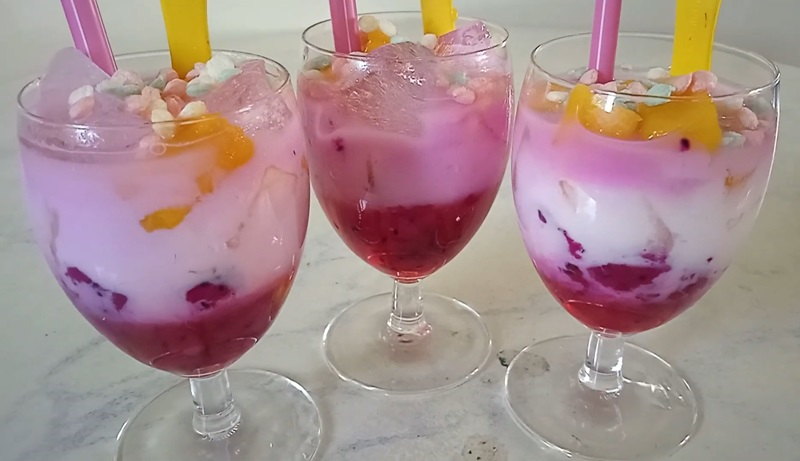
Es buah is a delightful Indonesian iced fruit cocktail dessert, offering a refreshing blend of flavors. This chilled and sweet concoction features diced fruits like cantaloupe, honeydew, pineapple, squash, papaya, jackfruit, and kolang kaling (Arenga pinnata fruit), combined with shaved ice or ice cubes, and sweetened with liquid sugar or syrup. The fruit composition can vary, with additions such as watermelon, mango, longan, and even imported fruits like kiwi, lychee, strawberry, peach, pear, or grapes. Additional ingredients like grass jelly, seaweed, agar-agar jelly, or nata de coco may also be included. A popular choice during Ramadhan, especially for iftar, es buah shares similarities with es campur and es teler, each offering a unique blend of ingredients.
Soda Gembira
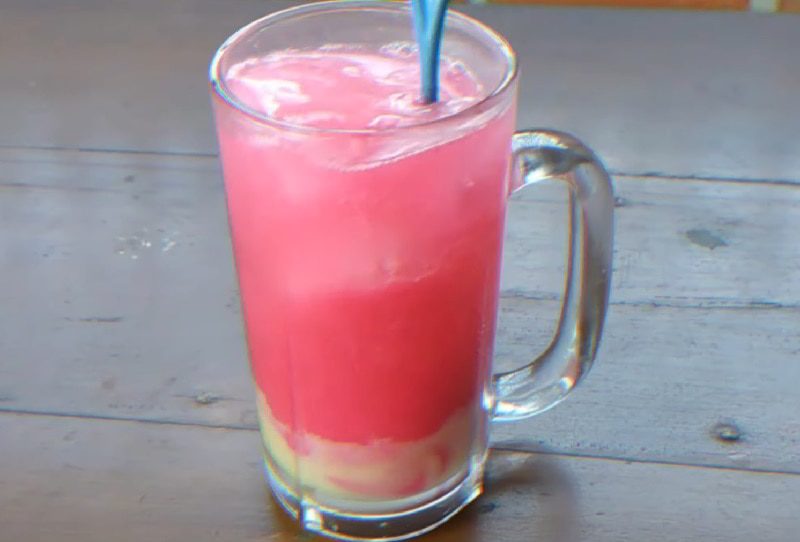
"Soda Gembira" is an Indonesian beverage that translates to "Happy Soda." This colorful and effervescent drink is made by combining various fruity flavors with soda, creating a fizzy and delightful concoction. It often includes ingredients like syrup, condensed milk, and additional toppings such as fruit chunks or jelly. Soda Gembira brings joy with its vibrant appearance and sweet, fizzy taste, making it a refreshing and celebratory choice in Indonesian beverage culture.
Dadiah
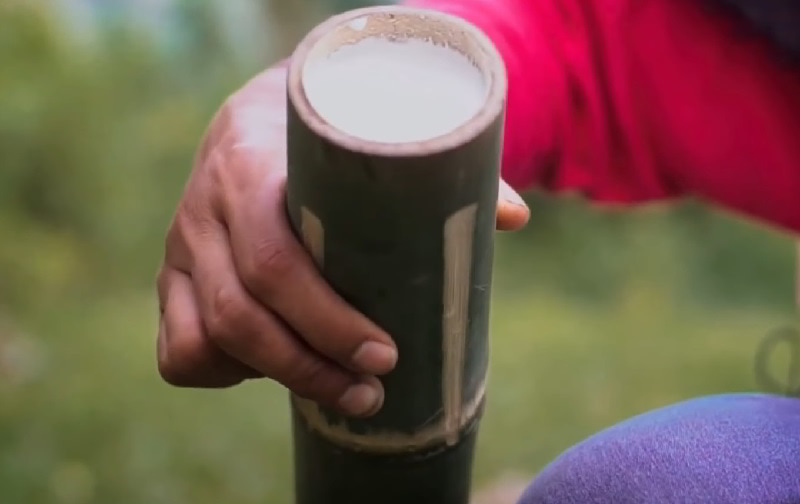
Dadiah, known as dadih in Indonesian, is a traditional fermented milk highly cherished in West Sumatra, Indonesia. This unique dairy product is crafted by pouring fresh, untreated buffalo milk into a bamboo tube sealed with a banana leaf, allowing it to naturally ferment for two days at room temperature. Indigenous lactic bacteria present in buffalo milk initiate the fermentation process. The resulting dadiah offers distinct strains of lactic acid bacteria, influenced by the buffalo milk, bamboo tubes, or banana leaves. Typically enjoyed for breakfast, dadiah is often mixed with ampiang (traditional glutinous rice krispies) and palm sugar. Additionally, it can be paired with hot rice and sambal for a delightful culinary experience.
Bir pletok
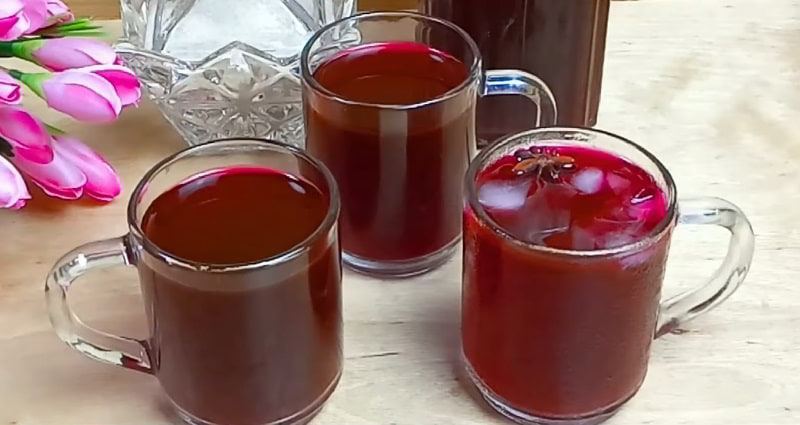
"Bir Pletok" is a traditional non-alcoholic Indonesian spiced beer originating from Betawi, Jakarta. This unique beverage is crafted by combining traditional herbs and spices, such as ginger, lemongrass, galangal, and pandan leaves, with a base of sweet malt. The resulting drink is known for its aromatic and flavorful profile, offering a harmonious blend of sweetness and herbal notes. Bir Pletok holds cultural significance and is often enjoyed during festive occasions and celebrations, reflecting the rich culinary heritage of the Betawi people in Jakarta.
Es kelapa muda

Es kelapa muda is a refreshingly popular Indonesian beverage crafted from young coconut flesh, chilled or iced coconut water, and syrup. This delightful drink earned its place among the world's 50 most delicious beverages, ranking 19th according to CNN. Sweetening agents like liquid sugar, syrup, or honey are employed, with cocopandan or vanilla-flavored syrup being common choices. While some serve it in glasses, the traditional es kelapa muda is enjoyed directly from the whole coconut. Variations may include aromatic spices like cinnamon and clove for an added twist.
Teh talua
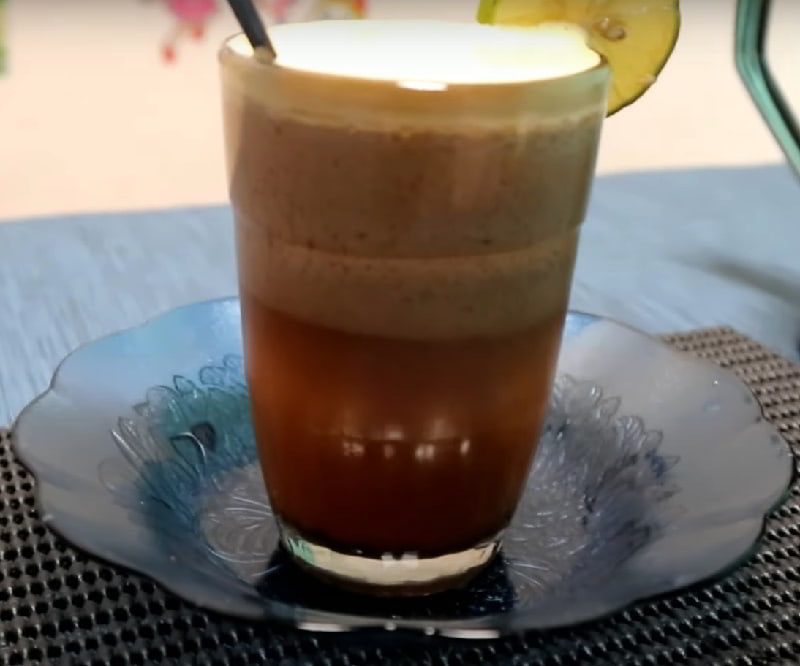
Sekoteng is a traditional Indonesian dessert, often enjoyed as a warming treat during cool evenings. This delightful concoction consists of a sweet and hearty soup made with a blend of ingredients. The base typically includes mung beans, peanuts, and cubed bread, all cooked in a sweet ginger broth. Additional components may include glutinous rice balls, slices of fried or steamed tofu, and occasionally slices of fruit like jackfruit. Sekoteng is not only cherished for its comforting warmth but also for its unique combination of textures and flavors, making it a beloved dessert in Indonesian culinary culture.
Sekoteng
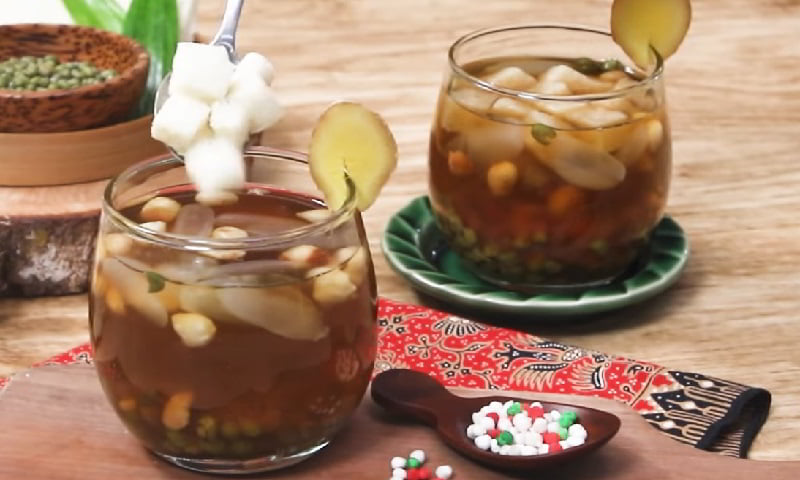
Sekoteng is a popular Indonesian beverage that is enjoyed as a warm and comforting treat. It is often consumed during colder months or as a soothing drink after a long day. This delightful drink is made with a combination of various ingredients that create a unique and flavorful experience. The base of Sekoteng is a warm herbal ginger broth, which is made by boiling water with ginger, pandan leaves, and cloves. This concoction infuses the drink with a pleasant and aromatic flavor. To this broth, sweeteners like palm sugar or brown sugar are added, providing a delightful sweetness. The drink is then filled with a variety of traditional ingredients that give it a distinct texture and taste. These include peanuts, fried bread cubes, and mung bean paste. The peanuts add a crunchy element, while the bread cubes provide a soft and chewy texture. The mung bean paste lends a creamy and nutty flavor to the overall drink. Sekoteng is often enjoyed as a dessert or a snack. It is not only delicious but also believed to have warming and healing properties due to the presence of ginger. Whether sipped on a chilly evening or enjoyed as a comforting treat, Sekoteng is a delightful Indonesian beverage that satisfies both the taste buds and the soul.
Moke
-1707108072.jpg)
Moke, a traditional beverage originating from Flores Island, Indonesia, is crafted from the fruits of the Arenga pinnata palm trees and Borassus flabellifer. Also known as sopi and dewe, it holds a special significance as moke on Flores Island. Revered as a symbol of hospitality and friendship, moke is created through the fermentation of palmyra palm and sugar palm fruits, a skill passed down through generations. Distillation, often performed in clay cases, is a time-intensive process taking about 5 hours per bottle. The finest quality, termed bakar menyala or 'hot and flaming,' is esteemed for its potential health benefits, setting it apart from regular moke with its alcoholic properties.
Es goyobod
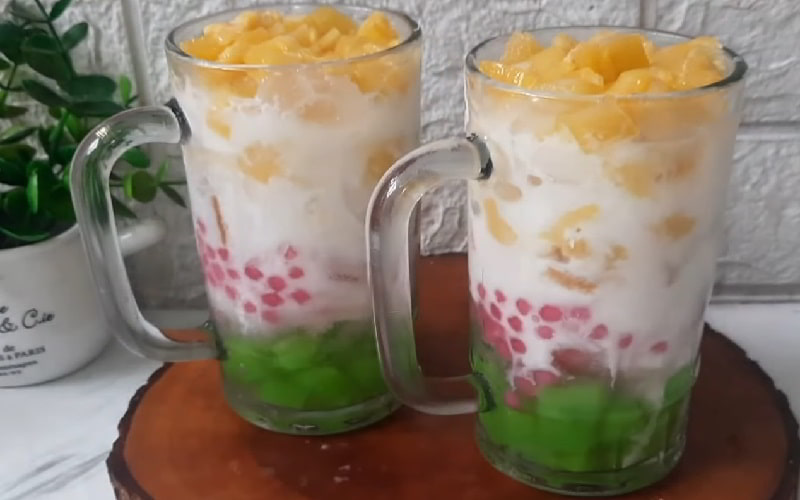
Es Goyobod, hailing from Sundanese culinary traditions in Indonesia, is a coconut milk-based cold beverage with origins akin to Es Campur. This refreshing concoction features shaved ice, coconut milk, sugar syrup, and a jellied mung bean starch called hunkwe. Additional ingredients, such as avocado and shredded coconut, contribute to the delightful medley of textures and flavors. Es Goyobod stands as a testament to the creativity of Indonesian beverages, blending coconut-centric elements with sweet and icy components to create a popular and invigorating drink.
Lahang
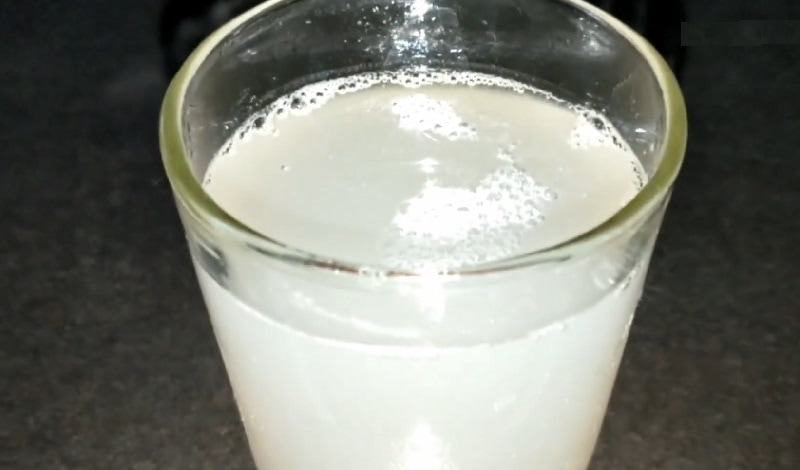
Lahang, a cherished traditional cold beverage originating from West Java, Indonesia, is crafted from the sap of Arenga pinnata, commonly known as sugar palm or aren. While Lahang is enjoyed throughout Indonesia, it holds a special association with the Sundanese people of West Java and is recognized as a traditional isotonic drink. The process involves tapping the male flowers of the sugar palm trees, typically in the early dawn to maintain freshness. Skilled farmers clean the flowers before attaching tubes to collect the slowly dripped sap. The optimal age for tapping the Arenga tree is five years or older. It's noteworthy that if the sap is left exposed for an extended period, it may undergo fermentation, transforming into vinegar or palm wine.
Laksamana Mengamuk
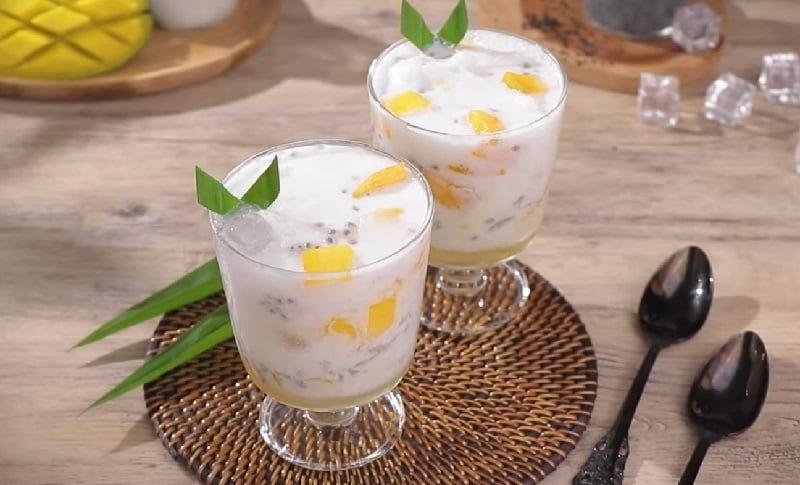
"Laksamana Mengamuk" is a distinctive beverage originating from Riau, Indonesia. This flavorful drink is created by blending mango with coconut milk, sugar syrup, basil seeds, and sweetened condensed milk. Known for its unique combination of tropical flavors and creamy textures, it holds special significance and is often served during the holy month of Ramadan, adding a refreshing touch to the festivities in the region.





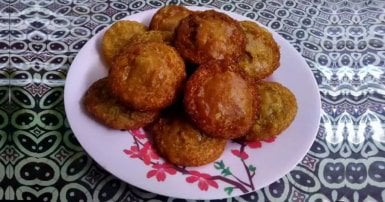
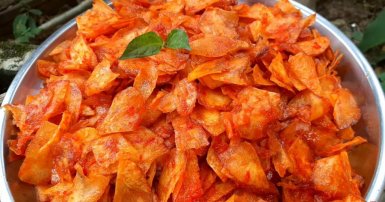
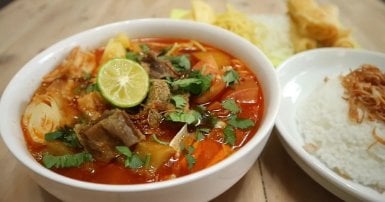

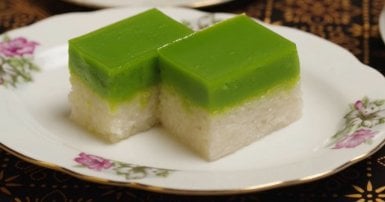
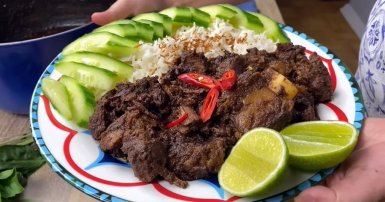
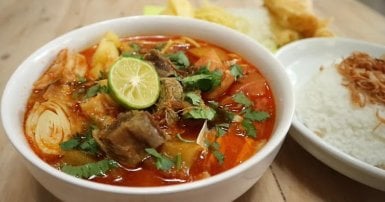

-1709813013.jpg)


